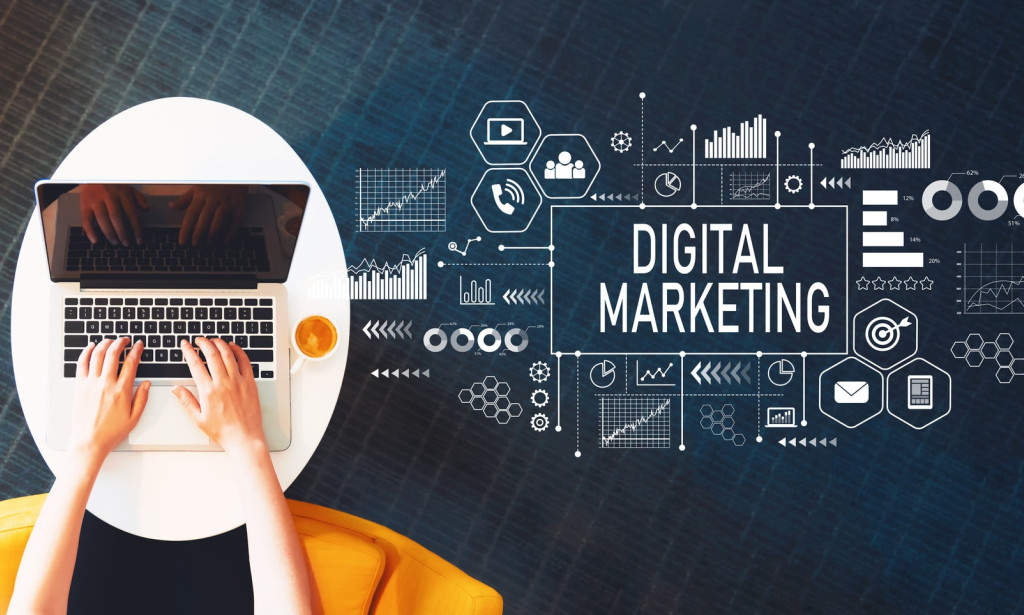What is Digital Marketing?
In today’s fast-paced world where smartphones are almost an extension of our hands, businesses have found a new playground to promote themselves — the digital space. This is where digital marketing comes in.
But what exactly is digital marketing? In simple terms, digital marketing refers to any form of marketing that exists online. It involves promoting products or services using digital channels such as search engines, social media platforms, email, mobile apps, websites, and more. Unlike traditional marketing — think TV ads, billboards, and flyers — digital marketing allows businesses to connect with their audience in real time and measure the effectiveness of their efforts more precisely.
Why is Digital Marketing Important?
The internet has revolutionized the way people interact with brands. Consumers now research products online, read reviews, compare prices, and even make purchases without stepping foot in a store. If your business isn't visible online, you’re missing out on a massive audience.
Digital marketing helps:
-
Reach a global audience with relatively lower costs
-
Target specific demographics based on interests, behaviors, and geography
-
Engage customers directly through comments, messages, and interactions
-
Track performance through analytics to see what’s working and what’s not
Key Components of Digital Marketing
Let’s break down the main areas that make up digital marketing:
1. Search Engine Optimization (SEO)
SEO is the practice of optimizing your website so it ranks higher in search engine results pages (like Google). A well-optimized website gets more organic (non-paid) traffic, which means more visibility and potentially more customers.
2. Content Marketing
This is all about creating valuable, relevant content to attract and retain an audience. Blog posts, videos, infographics, and eBooks are some examples. Content marketing helps build trust with your audience and establishes your brand as an authority in your niche.
3. Social Media Marketing
With billions of users on platforms like Facebook, Instagram, LinkedIn, and Twitter (now X), social media is a goldmine for marketers. Here, businesses can share content, run targeted ads, and interact with followers to build brand loyalty.
4. Pay-Per-Click Advertising (PPC)
PPC is a model where advertisers pay each time someone clicks on their ad. Google Ads and social media platforms offer powerful PPC tools to drive traffic instantly to your website. It's a great way to get quick visibility, especially for new businesses.
5. Email Marketing
Despite being one of the oldest forms of digital marketing, email is still incredibly effective. Businesses use email newsletters, promotional campaigns, and personalized offers to stay connected with their customers.
6. Affiliate Marketing
This is a performance-based strategy where businesses reward third-party affiliates for bringing in traffic or sales through their marketing efforts. It’s a win-win for both the business and the affiliate.
7. Influencer Marketing
Partnering with social media influencers who already have a dedicated following can be an effective way to promote your products. It’s especially popular in industries like fashion, beauty, and lifestyle.
Benefits of Digital Marketing
-
Cost-Effective: Digital campaigns are often cheaper than traditional methods.
-
Real-Time Results: You can track clicks, views, conversions, and more instantly.
-
Highly Targeted: Ads can be shown only to the audience you want to reach.
-
Scalable: You can start small and scale up as your business grows.
-
Improved Engagement: It offers two-way communication, unlike one-way traditional marketing.
Challenges in Digital Marketing
While digital marketing offers many advantages, it’s not without challenges:
-
Constantly Changing Algorithms: Platforms like Google and Instagram frequently update their algorithms, which can affect your visibility.
-
High Competition: With many businesses online, standing out can be tough.
-
Need for Continuous Learning: Technology and trends evolve quickly. Marketers must stay updated to remain effective.
Conclusion
Digital marketing is no longer optional it’s essential. Whether you're a small local business or a global brand, having a strong digital presence is critical to your success. With the right strategy, tools, and creativity, digital marketing can help you reach more people, build meaningful relationships, and grow your business like never before.
In the end, digital marketing is not just about selling it’s about connecting. And in a digital world, those connections are more valuable than ever.



You must be logged in to post a comment.